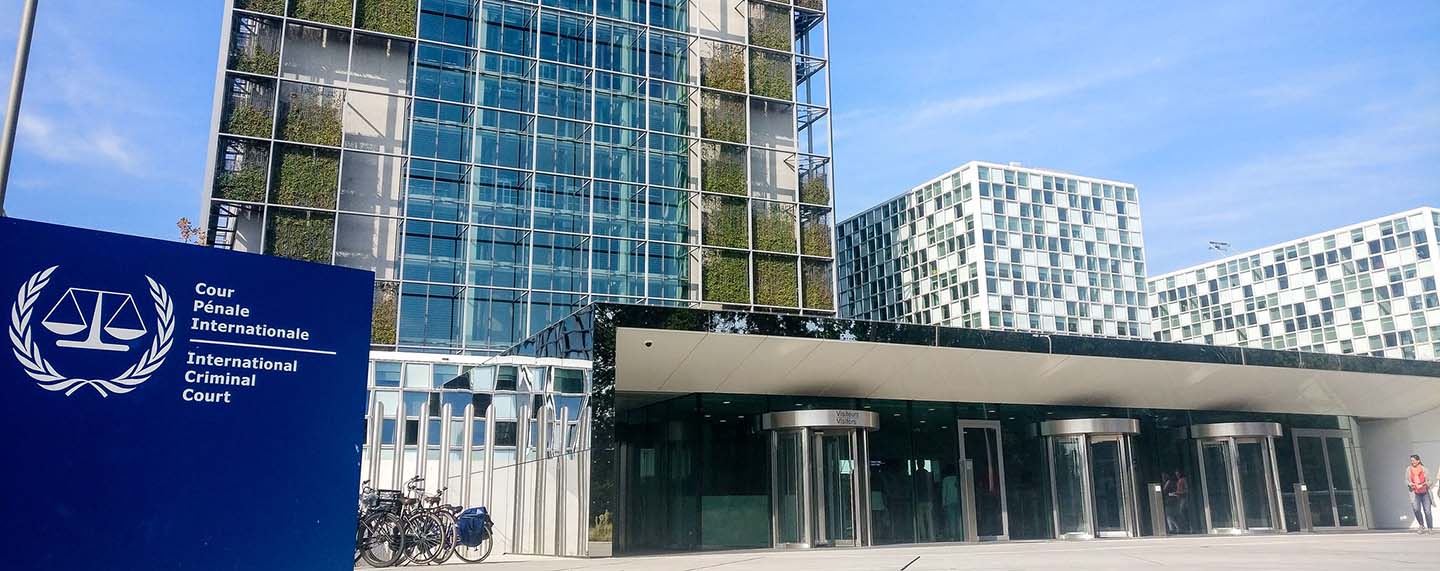On 1 February 2024 Armenia became the 124th State Party to join the Rome Statute of the International Criminal Court (ICC). Located in The Hague (the Netherlands), the ICC’s mandate is to prosecute individuals for the most serious crimes of international concern, such as genocide, war crimes, crimes against humanity and the crime of aggression, when national criminal jurisdictions are unwilling or unable to do so. Despite the controversies surrounding the nature of the Court, new scepticism towards its prospects of survival has arisen vis-à-vis financial impediments and budgetary constraints.
The revitalised interest in international criminal justice must become an incentive to increase financial support to the ICC
ICC mass atrocity investigations, although intrinsically more challenging and difficult to prosecute than domestic ones, have long been subject to underfunding. The illusory expectations for the ICC to deliver on such a broad utopian mandate have been crystallised in an omnipresent sentiment of crisis in the international criminal justice project. The Court’s financial deficit and budgetary burden have been observed since its establishment. The ever-expanding workload and jurisdiction over a vast geographical area has not been paralleled by a proportionate increase in State Parties’ financial support. The year 2015 marked a critical juncture in the Court’s prospects for increased budgetary contributions when most of the largest financial contributors –Japan, Germany, the UK, France and Italy– vocally opposed the Prosecutor’s initiative for a ‘Basic Size’ core budget needs. This objection ultimately reinforced the fallacious conception of ICC budgets being overly inflated and, in refraining from demonstrating the harm inflicted to the Court’s efficiency, it wrongly signalled that increased budget cooperation was optional.
In 2023, following the war of aggression against Ukraine and the anomalous increase in the judiciary workload, the ICC requested the biggest increase to its budget since the years of its establishment. The latter contravened and undermined the largest contributors’ consensus advocating zero-nominal growth in the budget. This position was sustained by alleged national fiscal constraints and also as a measure to enhance institutional efficiency and effectiveness. Nevertheless, scholars demonstrate the underlying flaws in the budget efficiency argument as –unlike preceding ad hoc tribunals like the International Criminal Tribunal for the Former Yugoslavia (ICTY)– the ICC permits victim participation and has salaries irrevocably determined by the United Nations’ common system of salaries. As a result, the budget is left with more financial commitments and little room for readjustments, with State Parties’ reluctance to support the Court directly jeopardising budgetary long-term sustainability.
The substantial disparity between the resources being allocated and the Court’s workload has hindered judicial efficacy and victims’ prompt access to justice. In light of this dysphoric situation, the Prosecutor was compelled to act accordingly and introduced the possibility of providing voluntary contributions and secondments of personnel to partially alleviate the financial pressures. The ICC Committee on Budget and Finance rapidly clarified that the two proposed options should only be regarded as complementary and supplementary mechanisms to the core budget required in an attempt to deter future budgetary downsizing. This notwithstanding, concerns persisted over the implications for the Court’s independence, its long-term effective functioning and the inevitable creation of an informal two-tier system whereby the Office of the Prosecutor (OTP) would obey donor demands and thus direct resources to the State’s favoured prosecutions. In the face of such legitimate scepticism, the Prosecutor openly rejected the possibility of applying earmarked voluntary contributions and affirmed that the Court’s assessments would be the only determinants for resource allocation in the Court’s criminal investigations and procedures. Despite this, the public was confronted with the stark reality: budget constraints were soon followed by controversial decisions inherently compromising the ICC’s effectiveness and independence. For instance, the Western states –notably Canada, the UK and Germany– have been opposed to open investigations on Israel’s alleged crimes committed in the occupied Palestinian territory. As a consequence, we may observe how these political considerations have materialised in the OTP’s decision to allocate nearly five times more resources to the Ukraine investigation compared with the new Palestine investigation. This unequivocal instrumentalisation of international criminal justice has further sustained the advancement of Western nations’ geopolitical endeavours. Therefore, to the detriment of fundamental principles of justice, the legitimacy that emanates from the apolitical nature of the Court could be at risk and left at the mercy of the Western powers’ manipulations to further foreign policy goals.
This comes as no surprise to scholars and policymakers as it is coherent with the vast array of past accusations against the Court as a neo-colonial instrument for Western control and geopolitical dominance. Such double standards are corroboration of what sceptical scholars from the Global South have consistently referred to as a privatisation of justice that is contingent upon Western influence. In this regard, ICC funding patterns largely reflect its position as a tool of powerful states. Consequently, Africa becomes a disproportionate target for criminal prosecution, selective justice is exacerbated and the Court is more susceptible and vulnerable to powerful states’ manipulation.
Budgetary constraints may also be associated with examples of bypassing administrative judicial procedures and ‘deprioritising’ certain cases, such as alleged US Armed Forces war crimes in Afghanistan. Once again, institutional legitimacy and judicial effectiveness are discredited, with delays undoubtedly leading to the loss of evidence and diminished trust amongst citizens, victims and affected communities.
For all these reasons, the ICC’s structural deficiencies in budgetary support and resource allocation should only entail robust discussions addressing increased financial support by State Parties with a long-term outlook. It is a country’s financial backing for specific types of justice that demonstrates its commitment to justice rather than mere rhetoric. The above-mentioned initiative by the Prosecutor to allow voluntary contributions and secondments constitutes an admission of the chronic and systemic underfunding of the Court. What is more, it sheds light upon the increased politicisation and selectivity bias towards the Global South that has endured. It is worth noting that voluntary contributions are not detrimental to effective and independent criminal justice per se. However, they must be accompanied by close and transparent monitoring of their allocation and must be elements supporting rather than replacing long-term strategies to strengthen the organisation’s annual budget. Likewise, it is vital to provide satisfactory reparations to remedy the harm inflicted upon the victims. A non-partisan alternative to voluntary contributions is, inter alia, supporting the Trust Fund for Victims whilst emphasising that the contribution’s magnitude is still vital. To this end, countries like Spain have departed from the clearly inadequate contribution of €40.000 in 2020 towards a more substantial commitment of €250.000 as announced in December 2023.
Resolute investments are a sine qua non to ensure that the ICC remains an independent and effective instrument for international criminal justice. Amidst a period marked by political turmoil and persistent scepticism over the Court’s legitimacy, failing to match the increased workload with commensurate budget support could only exacerbate its vulnerability to criticism and further erode its public credibility. The invasion of Ukraine and the ongoing armed conflict in Gaza have reinvigorated the importance of individual criminal responsibility for violations of jus in bello: the Law of Armed Conflict or International Humanitarian Law. The revitalised interest in international criminal justice must become an incentive to increase financial support to the ICC, in a move to safeguard the effective prosecution of perpetrators of international crimes and deliver on the Rome Statute mandate to provide just, equitable and adequate reparations to the victims, irrespective of national and partisan considerations. We are now experiencing a momentum for international criminal accountability. Only firm and non-arbitrary budgetary increases will be able to obstruct the degradation of the ICC’s legitimacy, independence and accountability to fight against impunity.



